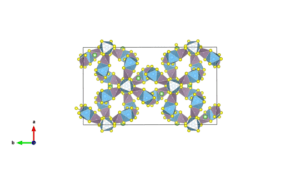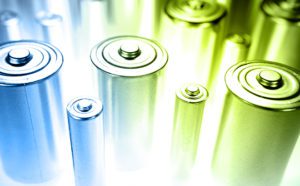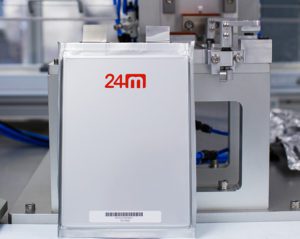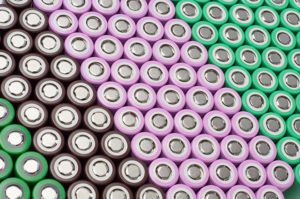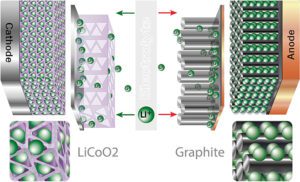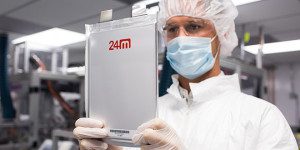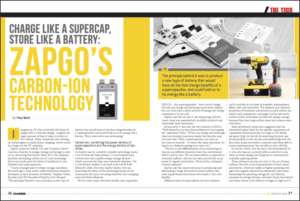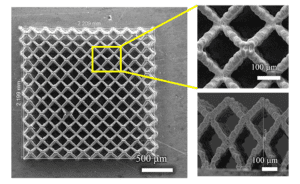As research into solid-state lithium batteries continues, researchers at Belgium’s Université catholique de Louvain (UCLouvain) say they’ve found a new solid material, LTPS, in which lithium can travel more easily than in any other solid electrolyte. The results are published in the scientific journal Chem from Cell Press. Lithium ions are much less mobile in… Read more »
Search Results Found For: "solid electrolyte battery"
Carnegie Mellon researchers develop semi-liquid lithium metal anode to pair with solid ceramic electrolytes
Researchers from Carnegie Mellon University have developed a semi-liquid lithium metal-based anode that could lead to higher capacity and better safety than typical lithium metal-based batteries that use lithium foil as anodes. The research team published their findings in the June 2019 issue of Joule. “Incorporating a mewtallic lithium anode into lithium-ion batteries has the… Read more »
24M unveils Dual Electrolyte System for next-generation cells
Battery company 24M unveiled its Dual Electrolyte System at the International Battery Seminar & Exhibit last month in Florida. According to 24M, the system permits cells with compositionally distinct electrolytes to be manufactured at scale, enabling next-generation cell chemistries. These cells can provide energy densities exceeding 350 Wh/kg as well as improved cycle life and… Read more »
Solid Power receives investment from Ford, says it’s ready for production in Q2 2019
Solid Power, a spin-out company of the University of Colorado, has partnered with Ford to continue development of its all-solid-state batteries (ASSBs) for EVs. The partnership will focus on further developing ASSBs towards automotive requirements. The partners will use Solid Power’s fully automated, roll-to-roll production facility, which the company says will be fully operational in… Read more »
Higher crystallinity results in better solid-state batteries
Scientists at the Tokyo Institute of Technology have been working on solid-state batteries, which are theoretically safer, more stable, and have higher energy densities than conventional Li-ion batteries with liquid electrolytes. They have recently made progress towards overcoming a major limitation of solid-state batteries: high resistance at the interface between the electrodes and the electrolytes… Read more »
Next-Battery moves a step closer to commercialization
Shanghai-based EV maker Lvchi has partnered with Next-Battery to fast-track the commercial rollout of Next-Battery’s battery technology. At its Ukraine facility, Next-Battery is producing cathode prototypes with ultra-porous metal oxides and a lithium-infused nanostructured surface. The company’s proprietary process significantly increases the surface area of the metal oxides in the cathode, which allows dimension reduction… Read more »
24M raises $21.8 million to accelerate SemiSolid battery development
Cambridge, Massachusetts-based 24M has raised $21.8 million in Series D funding, which it will use to accelerate production of its SemiSolid lithium-ion cells for the EV market. Ceramics manufacturer Kyocera and global trading firm Itochu led the financing round. Previous investors, including North Bridge Venture Partners, also participated. 24M introduced its SemiSolid battery design in… Read more »
Charge like A supercap, store like a battery: ZapGo’s carbon-ion technology
Imagine an EV that could add 300 miles of range with a 5-minute charge – roughly the same amount of time it takes to refuel an ICE vehicle. Many companies are working on technologies to enable faster charging, which would be a huge win for EV adoption. ZapGo, based in Oxford, UK and Charlotte, North… Read more »
University of Michigan researchers develop non-combustible, non-degrading ceramic electrolyte
Scientists at the University of Michigan have developed a solid-state electrolyte which they claim is non-combustible (which is good, because it’s heated to over 1,800° F during manufacturing!) and not vulnerable to dendrite formation due to a stabilizing ceramic layer. The electrolyte has special properties that allow for increased capacities and faster charging rates as well. Current… Read more »
Carnegie Mellon creates new method to 3D print battery electrodes
Porous electrodes have been 3D printed in the past using extrusion processes in which a strand of material is extruded from a heated nozzle. Interdigitated, or clasped, structures created with this technique provide space for ion flow, but their limited geometries are quite inefficient. Carnegie Mellon University’s new research has developed a completely different additive process… Read more »




